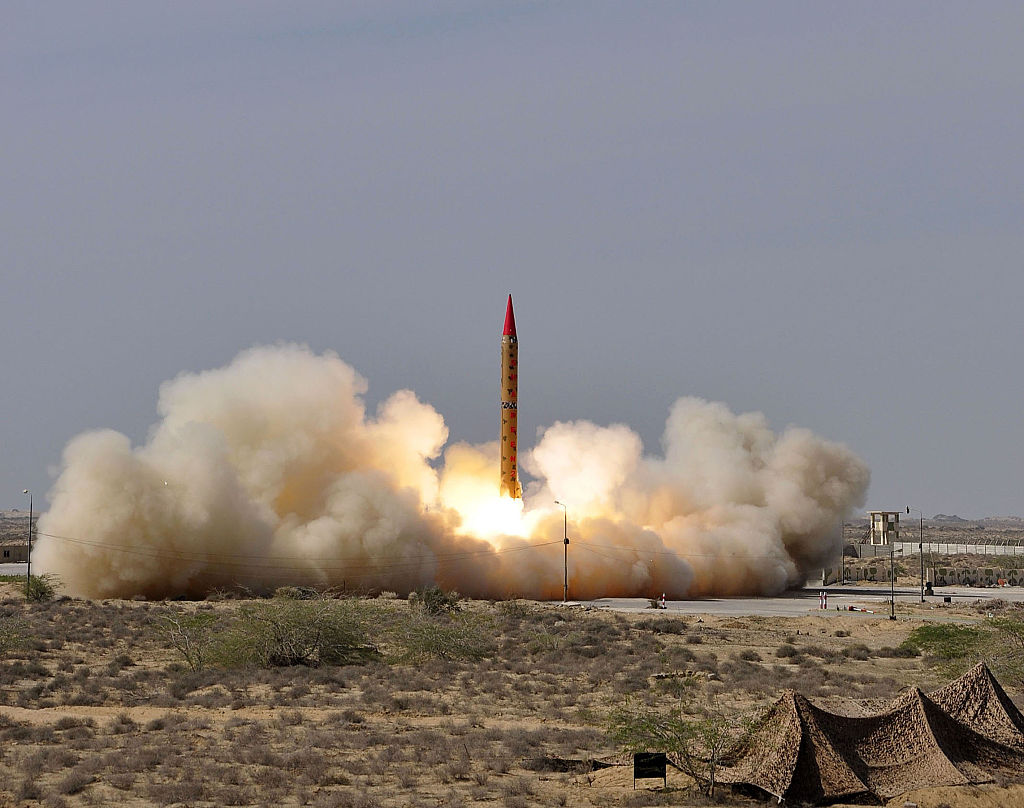A senior White House official stated on Thursday that nuclear-armed Pakistan is developing long-range ballistic missile capabilities that could eventually enable it to reach targets well beyond South Asia, potentially making it what he called an “emerging threat” to the United States.
Deputy National Security Adviser Jon Finer’s surprise revelation underscored how far the once-close ties between Washington and Islamabad have deteriorated since the 2021 U.S. troop withdrawal from Afghanistan.
It also raised questions about whether Pakistan has broadened the aims of its nuclear and missile programmes, which were long intended to counter India.
The two nations have fought three major wars since their independence in 1947.
Speaking at the Carnegie Endowment for International Peace, Finer noted that Pakistan has pursued increasingly advanced missile technology, ranging from long-range ballistic systems to equipment that would allow the testing of significantly larger rocket motors.
If these developments continue, he said, Pakistan would gain the ability to strike targets far beyond South Asia, including within the United States. The number of nuclear-armed states with missiles that can reach the U.S. homeland “is very small and they tend to be adversarial,” he continued, naming Russia, North Korea and China.
“So, candidly, it’s hard for us to see Pakistan’s actions as anything other than an emerging threat to the United States,” Finer said.
His remarks came one day after Washington announced a new round of sanctions related to Pakistan’s missile development efforts, including, for the first time, measures targeting the state-run defence agency overseeing those activities.
The Pakistani embassy did not immediately respond to requests for comment.
Islamabad describes its nuclear and missile programmes as essential deterrents against potential Indian aggression and as a means of maintaining regional stability.
Two senior US administration officials, speaking on condition of anonymity, said concerns about Pakistan’s missile programme stemmed largely from the size of the rocket engines being developed.
The threat posed to the United States is up to a decade away, said one official.
They said Finer’s comments were intended to prompt Pakistani officials to explain the purpose behind developing more powerful rocket engines, an explanation Washington has yet to receive.
“They don’t acknowledge our concerns. They tell us we are biased,” said the second U.S. official, adding that Pakistani officials have wrongly implied that U.S. sanctions on their missile program are intended “to handicap their ability to defend against India.”
Finer noted that he and other senior US officials have repeatedly expressed concerns about the programme to top Pakistani officials, without any meaningful progress.
Washington and Islamabad have a long history of cooperation in development, counterterrorism, and security.
“That makes us question even more why Pakistan would be motivated to develop a capability that could be used against us,” Finer added.
Pakistan has criticised the close ties that US President Joe Biden has nurtured with India, its longstanding rival, and retains strong relations with China, some of whose entities have faced US sanctions for supplying Islamabad’s missile programme.
Pakistan conducted its first nuclear test in 1998, more than two decades after India’s initial nuclear test, and has built an extensive arsenal of ballistic missiles capable of delivering nuclear warheads.
The Bulletin of the Atomic Scientists estimates that Pakistan possesses about 170 warheads.
US-Pakistani relations have swung dramatically over the years. The two countries were close partners during the Cold War, supporting Afghan rebels against Soviet occupation from 1979 to 1989.
Pakistan was also a key partner in America’s fight against al Qaeda after the 11 September 2001 attacks and has held major non-NATO ally status since 2004.
However, ties have been undermined by military coups in Pakistan, its past support for the Taliban’s 1996-2001 regime in Afghanistan, and its nuclear ambitions.
Several experts said Finer’s speech came as a major surprise. “For a senior U.S. official to publicly link concerns about proliferation in Pakistan to a future direct threat to the U.S. homeland – this is a mighty dramatic development,” said Michael Kugelman of the Wilson Center think tank.
(Reuters)




















